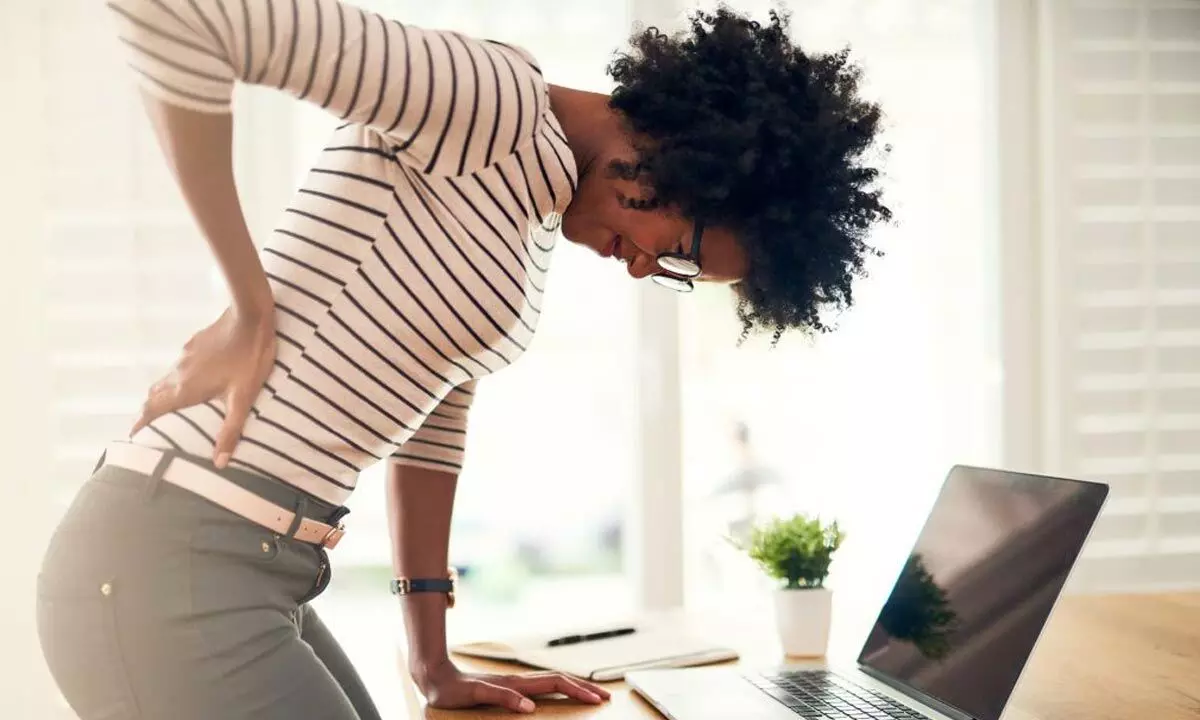What leads to herniated discs and treatment for a herniated disc?

What leads to herniated discs and treatment for a herniated disc?
Slip discs can happen with age because with age discs tend to lose some of their protective water content due to which they can slip more easily out of place.
Slip discs can happen with age because with age discs tend to lose some of their protective water content due to which they can slip more easily out of place. This is more common in men than women. Certain motions like twisting, turning or lifting an object too can cause the condition. Lifting large heavy objects can put great strain on your lower back which can result in a slipped disc. People who are in physically demanding jobs are at an increased risk of experiencing a slipped disc.
Our spinal column comprises a series of bones that are stacked onto each other. These bones are cushioned by discs that protect them by absorbing shocks from daily activities like walking, lifting and twisting. Each disc has two parts: a soft gelatinous inner portion and a tough outer ring. Any injury or weakness can cause the inner portion of the disc to stick out of the outer ring which is known as slipped, herniated or prolapsed disc.
Slipped disc can cause pain and discomfort and if it compresses one of your spinal nerves then you may also experience numbness and pain along with the affected nerve. This condition can occur in any part of the spine but usually, it occurs in the lower back. Many people often have no symptoms from a herniated disk and for people who do have symptoms, their condition tends to improve with time. Slipped disc usually does not require surgery unless one's condition is severe.
What are the signs and symptoms of a slipped disc?
The signs and symptoms of a slipped disc include:
Numbness and pain on one side of the body
Pain in arms and legs
Pain that worsens at night or with certain body movements like standing or sitting
Pain and muscle weakness while walking short distances
Burning sensations, tingling or aching in affected areas
The type of pain often varies from person to person and one must visit a doctor if their pain results in numbness or tingling that is affecting their ability to control their muscles.
What causes slipped discs?
Slip discs can happen with age because with age discs tend to lose some of their protective water content due to which they can slip more easily out of place. This is more common in men than women. Certain motions like twisting, turning or lifting an object too can cause the condition. Lifting large heavy objects can put great strain on your lower back which can result in a slipped disc. People who are in physically demanding jobs are at an increased risk of experiencing a slipped disc.
People who are obese are also at increased risk for a slipped disc because their discs must support the additional weight. Weak muscles and a sedentary lifestyle may also contribute to the development of a slipped disc.
What are the complications?
An untreated severe slipped disc can cause permanent nerve damage. In very rare cases, it can cut off nerve impulses to the cauda equina nerves in the lower back and legs and patients may lose bowel or bladder control.
Long-term complications of the condition include saddle anaesthesia in which the slipped disc compresses nerves and causes the patient to lose sensation in their inner thighs, the back of their legs, and the rectum.
While the symptoms of a slipped disc may improve, if someone is unable to perform their regular activities with ease then you must see your doctor.
How are slipped discs diagnosed?
A slipped disc is first diagnosed through a physical exam where the doctor identifies the source of the pain and discomfort and analyzes your nerve function and muscle strength. The doctor will check if you are feeling any pain while moving or touching the affected area and will ask you about your medical history and symptoms.
Additionally, several imaging tests are performed by the doctor to view your bones and spine muscles through which they can identify any damaged areas. These imaging tests include -
X-rays
CT scans
MRI scans
Discograms
Based on the information provided by these pieces, your doctor will then determine the exact cause of your pain, weakness and discomfort.
Your doctor can combine all these pieces of information to determine what is causing your pain, weakness, or discomfort.
Is there any treatment for a slipped disc?
The treatment of slipped discs usually depends upon the level of discomfort of the patient and how far the disc has slipped out of its place. These treatments range from conservative to surgical procedures.
A physical therapist may recommend exercises that can strengthen your back while reducing your pain. In case the symptoms do not subside in six weeks or if your slipped disc is affecting your muscle function then your surgeon may recommend surgery.











